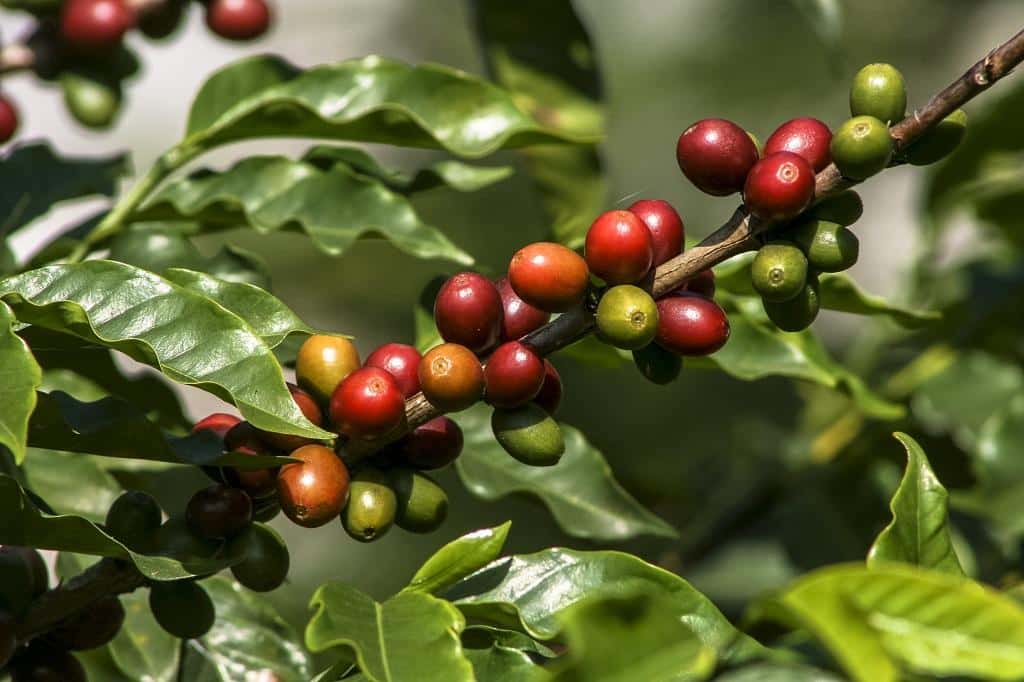About Coffee Production:
- The vast majority of the world’s coffee comprises two species — Coffea Arabica (Arabica) and Coffea Canephora (Robusta). Coffee, especially Arabica, is considered a sensitive crop, vulnerable to climate variability and change.
- Climatic conditions required for coffee production
- It requires a hot and humid climate for its growth.
- Temperatures ranging between 15°C and 28 °C
- Rainfall: 150 to 250 cm.
- Soil: Well-drained, loamy soil containing a good deal of humus and minerals like iron and calcium are ideal for coffee cultivation.
- It is generally grown under shady trees.
- Dry weather is necessary at the time of ripening of the berries.
- It is grown on hill slopes at elevations from 600 to 1,600 metres above sea level.
- In India coffee is largely cultivated in Karnataka, Kerala, Tamil Nadu, Andhra Pradesh and Odisha, among which, Karnataka produces the most with over 70% of the total output.
Q1) What is loamy soil?
Loamy soil or loam soil is a type of soil that contains a mixture of sand, silt, and clay particles. These particle types are combined with each other to avoid the negative effects of each type. Typically, loamy soil is highly fertile and is easy to work with as well. Loamy soil typically provides proper drainage
Source: Mornings sans coffee? Global production under threat due to climate hazards finds study
Last updated on June, 2025
→ UPSC Notification 2025 was released on 22nd January 2025.
→ UPSC Prelims Result 2025 is out now for the CSE held on 25 May 2025.
→ UPSC Prelims Question Paper 2025 and Unofficial Prelims Answer Key 2025 are available now.
→ UPSC Calendar 2026 is released on 15th May, 2025.
→ The UPSC Vacancy 2025 were released 1129, out of which 979 were for UPSC CSE and remaining 150 are for UPSC IFoS.
→ UPSC Mains 2025 will be conducted on 22nd August 2025.
→ UPSC Prelims 2026 will be conducted on 24th May, 2026 & UPSC Mains 2026 will be conducted on 21st August 2026.
→ The UPSC Selection Process is of 3 stages-Prelims, Mains and Interview.
→ UPSC Result 2024 is released with latest UPSC Marksheet 2024. Check Now!
→ UPSC Toppers List 2024 is released now. Shakti Dubey is UPSC AIR 1 2024 Topper.
→ Also check Best IAS Coaching in Delhi
























